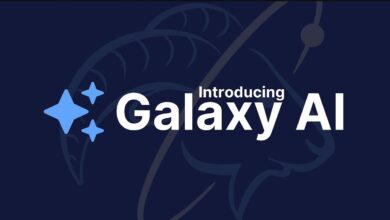Quantum Computing: Unraveling the Future of Technology

QuantumComputing
Quantum Computing Quantum computing represents a paradigm shift in the field of computation, promising to revolutionize how we process information. Unlike classical computers, which use bits to perform calculations, quantum computers use quantum bits, or qubits, leveraging the principles of quantum mechanics to perform complex computations more efficiently.
The Basics of Quantum Computing
Understanding Qubits
A qubit is the fundamental unit of quantum computing. It differs from a classical bit in its ability to exist in multiple states simultaneously, thanks to the quantum phenomena of superposition and entanglement.
- Superposition: While a traditional bit can be either 0 or 1, a qubit can be in a state of 0, 1, or both at the same time. This property allows quantum computers to process a vast number of possibilities concurrently.
- Entanglement: When qubits become entangled, the state of one qubit is dependent on the state of another, no matter the distance between them. This interconnectedness is what allows quantum computers to perform complex operations more quickly than their classical counterparts.

Quantum Gates and Circuits
Quantum gates manipulate qubits, analogous to how logic gates manipulate bits in classical computing. These gates operate on the qubits, changing their states and producing the desired outcomes. When combined, quantum gates form quantum circuits, laying the foundation for quantum algorithms.
Potential and Challenges
Revolutionary Applications
Quantum computing holds immense potential across various sectors:
- Drug Discovery and Biomedical Research: Quantum computers can simulate and analyze the complex molecular and chemical interactions necessary for drug development, significantly speeding up the process. This capability is vital for understanding diseases and developing effective treatments or vaccines.
- Optimization Problems: These computers excel at solving complex optimization problems found in logistics, finance, and manufacturing. For instance, they can optimize supply chain operations or find the best investment strategies by analyzing numerous variables and scenarios.
- Cryptography and Cybersecurity: Quantum computing can both pose a threat to current encryption methods and offer new, more secure ways of transmitting information. While it can potentially break many current cryptographic schemes, it also enables the development of quantum encryption methods like Quantum Key Distribution (QKD), which are believed to be unbreakable.
- Climate Modeling and Environmental Solutions: Simulating and predicting climate change requires immense computational resources due to the complexity of the variables involved. Quantum computers can analyze these large datasets more effectively, aiding in more accurate climate modeling and the development of strategies to mitigate environmental damage.
- Artificial Intelligence and Machine Learning: Quantum computing can process and analyze massive datasets much faster than traditional computers, which is a significant advantage for AI and machine learning. This speed can lead to quicker advancements in AI research and more sophisticated machine learning models.
- Material Science: Quantum computers can simulate and predict the properties of new materials at a molecular level, which is crucial for developing more efficient batteries, solar panels, and other technologies.
- Financial Modeling: In finance, quantum computing can be used for risk analysis, high-frequency trading, and portfolio optimization by quickly processing and analyzing vast amounts of market data.
- Quantum Supremacy Demonstrations: This involves performing a computation that is impractical on classical computers, showcasing the potential of quantum computing. Google’s achievement of quantum supremacy in 2019 is a notable example.

Technical and Practical Challenges
Quantum computing also faces significant challenges:
- Error Correction: Quantum states are fragile and prone to interference from the environment, leading to errors. Developing effective quantum error correction methods is crucial.
- Scalability: Building and maintaining a large number of qubits for practical applications is a formidable technical challenge.
- Software Development: There’s a need for new algorithms and programming paradigms tailored to quantum computing.
The Future and Beyond
Short-term Expectations
In the near term, we are likely to see quantum computers tackle specific problems that are intractable for classical computers, a concept known as quantum advantage.
Long-term Vision
In the long run, as technology matures and becomes more accessible, we can expect a broader integration of quantum computing into various fields, leading to unprecedented advancements in computation and problem-solving.
Conclusion
Quantum computing is not just another step in the evolution of computing—it’s a leap into a future brimming with possibilities. As research and development continue, the full potential of quantum computing will unfold, offering solutions to some of the most complex problems facing humanity today. The journey into the quantum realm is just beginning, and its impact on society, economy, and science will be monumental.





